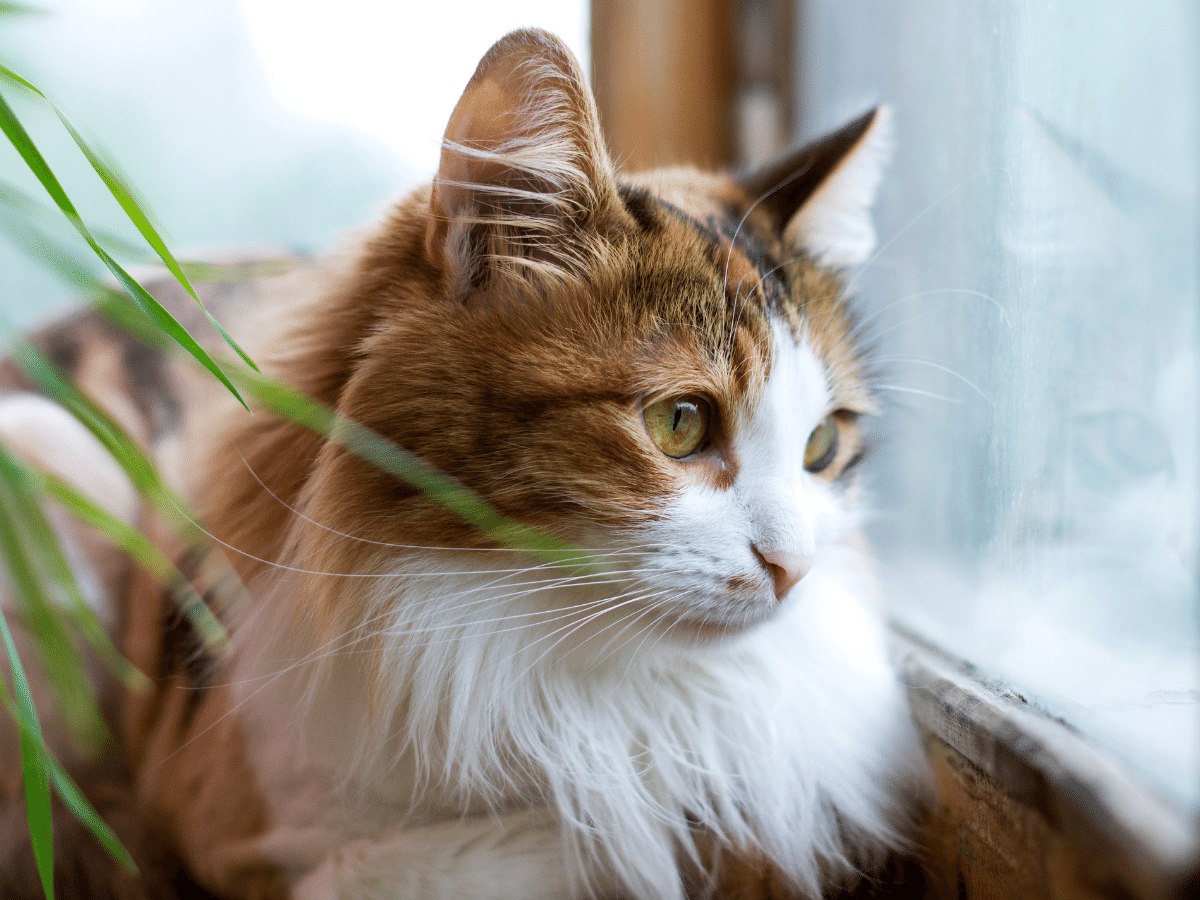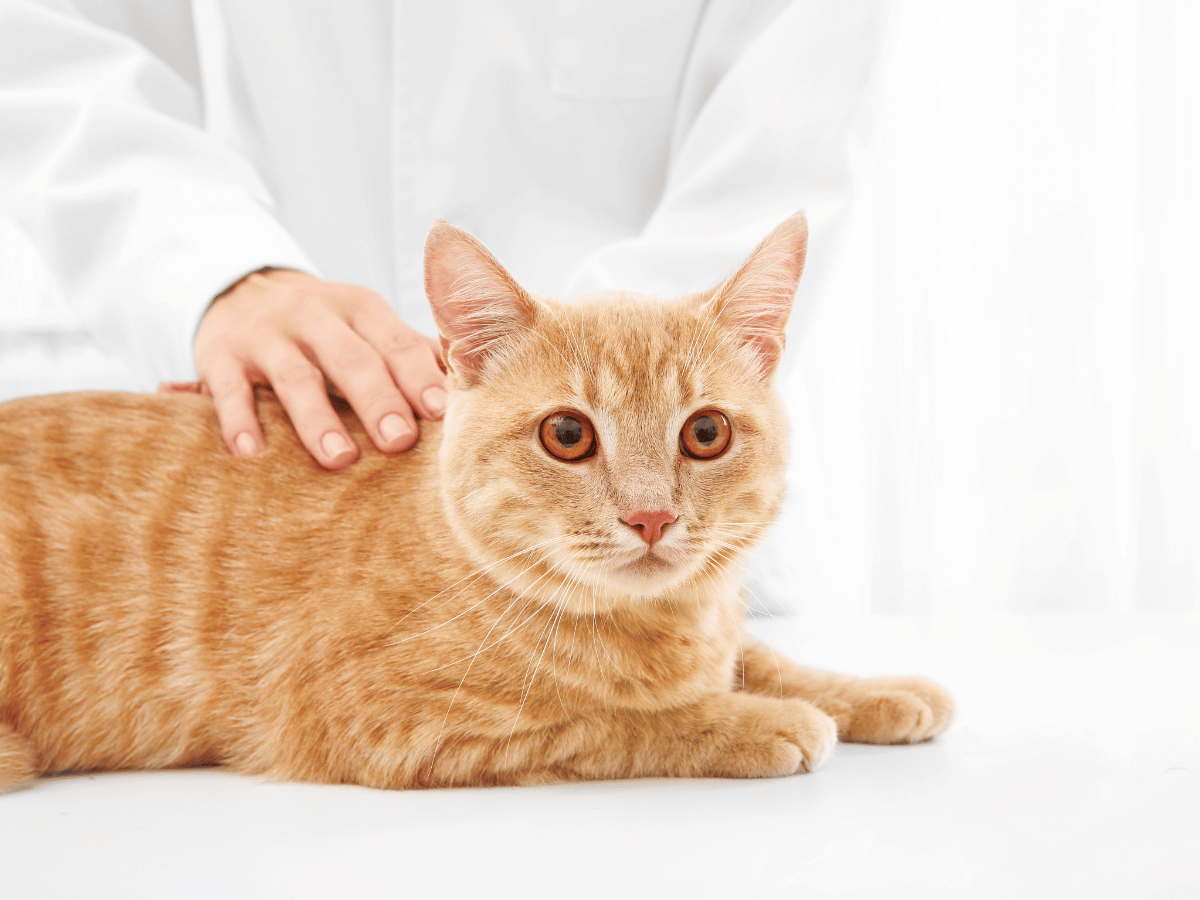
Is Your Dog Itching and Losing Hair? Here Are 6 Home Remedies You Should Know in 2025
If you notice that your dog's coat suddenly has one or two bald spots and you're still struggling to solve the problem, then it's a great time to learn how to use natural home treatments for a dog that's itchy and shedding.
How do you treat your canine family member's alopecia due to constant itching and biting? Why does he have a problem with peeling skin that leads to hair loss? Is hair loss in dogs different from alopecia in dogs? We'll answer these questions in a few moments.
And we will also share with you a detailed guide on natural home remedies that you can use to get rid of your dog's itching and hair loss.
At HomeoAnimo, we are committed to sharing with all pet owners and parents around the world the benefits of natural products for the health and happiness of our loved ones.
Let's start with a quick overview of what hair loss in dogs is.
Why is my dog scratching and losing hair?

Hair loss in dogs is basically a condition where a dog loses hair at a much faster rate than normal.
While dogs normally go through shedding—or the process where a dog sheds damaged or dead hair to encourage new hair growth—hair loss in dogs is an irregular phenomenon.
Additionally, it is not uncommon for dogs experiencing this problem to have some bald spots on their coats due to accelerated hair loss.
Now that we've cleared that up, let's talk about the causes of hair loss in dogs.
What causes itching and hair loss in dogs?

There are several possible reasons why your dog may be losing hair. Here are the most common causes of itching and hair loss in dogs:
Genetic
It's very likely that your dog is suffering from hair loss due to genetic factors. If one or both of your dog's parents had hair problems such as hypotrichosis, protein deficiency, or dermatomyositis, your dog may also be predisposed to them.
Additionally, certain dog breeds are particularly prone to hair loss, such as Greyhounds, Dachshunds, Yorkshire Terriers, Dobermans, and Bulldogs.
Allergies
Although it may seem surprising, dogs are just as prone to allergies as humans. Some of the most common triggers for allergies in dogs include certain foods like shrimp and dairy products, flea bites, dust mites, mold, and pollen.
When an allergic reaction occurs, it usually causes the dog's skin to itch. It's not uncommon for a dog to scratch and chew the affected area excessively in an attempt to relieve the problem, which eventually leads to hair loss.
Skin infections
Skin infections, such as ringworm and mange, can also cause hair loss in dogs.
This is because when these skin infections, caused by fungi and bacteria, are left untreated, they eventually become inflamed and itchy.
Boil-like growths may also appear on the dog's skin.
A dog will usually scratch and chew the affected area in an attempt to relieve the discomfort, which causes hair loss.
Age
Older dogs are prone to hair loss because their hair follicles are not as strong and healthy as they once were.
When these hair follicles fall out, they don't grow back as quickly as they should, which can lead to thinning hair or even bald spots in some cases.
Insect bites
Insect bites, especially those from wasps, ants, and spiders, can cause hives or rashes on a dog's skin.
Due to excessive licking and biting, not to mention occasional rubbing on surfaces, these insect bites almost always result in hair loss in dogs.
Exposure to chemicals
If you notice your dog is losing hair, exposure to chemicals may be the cause.
In addition to chemicals in your home, such as paints, solvents, detergents, and cleaners, your dog may also be allergic to the soap or shampoo you use.
Insufficient hygiene
Poor hygiene can also be a factor in hair loss in dogs.
When a dog's coat isn't properly washed regularly, oils and dirt can clog the hair follicles. This prevents hair from growing normally and can even lead to bald patches in some areas.
Additionally, lack of regular washing can also promote an excessive increase in the number of bacteria normally present in the dog's coat, causing the hair follicles to wither. This condition is commonly known as folliculitis.
Emotional stress
Dogs, just like humans, can suffer the effects of emotional stress, which can lead to significant hair loss.
The emotional connection between dogs and their owners is so strong that a dog may even experience symptoms of stress in response to its owner's emotional state.
I witnessed a striking story on the subject a few years ago when I was consulting a man in his thirties who had cancer and was the father of four children.
At the end of the consultation, just before leaving, he mentioned that his dog was losing large clumps of hair. I suggested a homeopathic remedy for his dog.
When he returned the following month, he informed me that his dog had started to grow hair back and everything was fine.
I concluded that the animal was losing its hair in response to its owner's illness, demonstrating an incredible symbiosis. This illustrates how animals can sense and react to their owner's emotions.
Now, let's talk about natural remedies you can use to eliminate itching and hair loss in dogs.
Home Remedies for Itching and Hair Loss in Dogs

Contrary to popular belief, you don't have to resort to "conventional" medications immediately when your dog is losing hair.
There are actually a number of natural treatments you should consider to address this problem.
Here are some useful tips you can note down on how to use home remedies for itching and hair loss in dogs:
Olive oil
The National Center for Biotechnology Information (NCBI) reports that olive oil is rich in oleic acid, which has been shown to have antioxidant properties.
In addition to helping keep hair follicles strong and healthy, oleic acid also has beneficial effects in slowing hair loss.
To use olive oil as a natural treatment for itchy, hairy dogs, take a clean piece of cloth or cotton swab and dab a small amount of it onto the bald or affected area. Keep in mind that a little goes a long way.
Gently massage the olive oil around the bald or affected area until it is completely covered. Leave it on for a few hours until dry.
Reapply as needed or until the skin in the affected area has returned to normal.
Oily fish
According to a study published by the National Center for Biotechnology Information (NCBI), nutrients and antioxidants found in fish oil, such as Omega-3 and Omega-6 fatty acids, can help improve hair density and reduce the likelihood of hair loss.
Fish oil is particularly abundant in certain types of oily fish such as salmon, herring, and mackerel.
To benefit from fish oil as a home remedy for itching and hair loss in dogs, be sure to incorporate fatty fish into your dog's regular diet.
However, it is important to remember that these fish should only be served after simple cooking, without the addition of flavorings or seasonings, and with the bones removed.
Lemon slices submerged in water
Another home remedy for a dog that is itchy and losing hair that you can use is lemon slices immersed in water.
As revealed by the National Center for Biotechnology Information (CNIB), lemon juice has antibiotic properties and can also act as a natural skin cleanser.
To use lemon as a natural treatment for hair loss in dogs, cut a lemon into slices and soak them in a bowl of water for at least an hour. Using a clean cloth or cotton swab, gently apply the mixture to the affected area.
In addition to helping eliminate bacteria, this home remedy also has a pleasant citrus aroma as a bonus!
It is crucial to remember that this home remedy should not be used if the affected area has an open lesion or wound, as it may cause a burning sensation in your dog.
Apple cider vinegar
Healthline reports that apple cider vinegar has antimicrobial properties that can help relieve itchy skin and eliminate fungus or bacteria that can cause hair problems. It is also believed to have the ability to help eliminate dandruff.
To use apple cider vinegar as a home remedy for itchy, hairy dogs, take a clean piece of cloth or cotton swab and apply a small amount to the bald or affected area until it is completely covered.
Leave on for thirty (30) minutes then rinse thoroughly with soap and water.
However, keep in mind not to use this natural treatment if your dog has an open lesion or wound. The acidity of apple cider vinegar can cause a burning sensation, which your four-legged friend won't like!
Coconut oil
The National Center for Biotechnology Information (NCBI) shares that in addition to having antimicrobial properties, coconut oil is also known to help reduce protein loss in hair to keep it strong and healthy.
To use coconut oil as a home remedy for itchy, hairless dogs, gently massage a generous amount of it onto the affected area, making sure the oil completely covers the fur.
Leave it on for about an hour until completely dry.
As an alternative option, you can also add a little coconut oil to your dog's bath water.
Just a quick reminder, though. Make sure to use only non-edible virgin coconut oil for this natural treatment, as it contains the most beneficial nutrients due to its least processed state.
Aloe vera
According to Taylor & Francis Online , a 1998 study found that compounds in aloe vera can help relieve inflammation caused by skin conditions like seborrheic dermatitis.
In addition to “significantly reducing scaling,” aloe vera application also reduced itching and tingling sensations caused by skin infections.
To use aloe vera as a natural treatment for itchy, hairy skin in dogs, cut a ripe leaf lengthwise to expose the inner pulp containing the gel. Apply a generous amount of this aloe vera gel to the affected area.
And just to make things even more interesting, in addition to its medicinal properties, aloe vera gel also has a cooling effect when applied to the skin.
Now, here is our favorite natural product when it comes to itching and hair loss in dogs.
A high quality natural product to have
 HomeoAnimo 's HO-4 (Skin Drainer) - Gold Formula is designed to support the overall health and appearance of the skin as well as help drain toxins that attach to the skin.
HomeoAnimo 's HO-4 (Skin Drainer) - Gold Formula is designed to support the overall health and appearance of the skin as well as help drain toxins that attach to the skin.
It also acts as a detoxifier for the kidneys and liver to naturally drain toxins from the body while at the same time supporting organ functions.
The HO-4 (Skin Drainer) - Gold Formula includes the following products:
- HO-4 (Skin Drainer) , which supports the overall health and appearance of the skin and gently detoxifies the skin of trapped toxins that cause skin problems.
- HO-1 (Kidney Drainer) , which drains toxins from the body, thus helping immune functions and regenerating the kidneys and urinary tract.
- And HO-2 (Liver Drainer) which promotes the elimination of toxins from the liver, thus achieving optimal liver function and digestion.
Whether you are looking to protect your dog from hair loss or support him when this problem arises unexpectedly, the HO-4 (Skin Drainer) - HomeoAnimo Gold Formula is an all-natural, high-quality product that you should consider.
Now let's move on to the symptoms of hair loss in dogs.
Symptoms of Hair Loss in Dogs

The most common indicators of hair loss in dogs include:
- Accelerated hair loss or hair fall
- Bald spots or patches on a dog's body
- Extremely wrinkled or flaky skin
- Repeated itching and scratching of a specific area or areas of the body
- A reddish discoloration around areas where there is hair loss
- The agitation
- The act of dragging oneself on one's backside
Now let's move on to a question that may have crossed your mind regarding hair loss in dogs: is there a skin disease that causes hair loss?
Is there a skin disease that causes hair loss in dogs?

The short answer is yes. Skin conditions such as ringworm and mange can cause hair loss in dogs.
Ringworm and scabies can lead to severe skin inflammation if left untreated - not to mention spread to other parts of the body.
Dogs usually try to relieve the pain and discomfort they feel by frantically biting and scratching the affected area, which can significantly worsen these skin problems.
This constant biting and scratching prevents the skin from healing completely and eventually interferes with the recovery and growth of hair follicles, which can lead to permanent hair loss in the affected area(s).
For our next topic, let's discuss something that many people tend to confuse. How do you distinguish the difference between hair loss in dogs and alopecia in dogs?
Hair Loss in Dogs vs. Alopecia in Dogs

Here are the main differences between hair loss in dogs and alopecia in dogs:
- Alopecia is usually congenital, while hair loss in dogs is usually caused by several other factors such as age, skin infections, allergies, exposure to chemicals and poor hygiene.
- Alopecia is immediately noticeable, leaving an affected area partially or completely hairless, whereas hair loss in dogs occurs gradually.
- Alopecia is considered an autoimmune disease in dogs, while hair loss is a symptom of an underlying condition the dog may have such as mange, ringworm, hotspots, a skin disease, as well as flea and tick infestation.
Additionally, hair loss in dogs and alopecia in dogs are two conditions that can be treated.
That's why it's essential to know how to use home remedies for itching and hair loss in dogs, as these conditions can occur when you least expect them.
Have HO-4 (Skin Drainer) - HomeoAnimo Gold Formula in your dog health product line is very useful and practical, whether you are looking to protect your dog from hair loss or to give him the support he really needs when he is going through this problem.
Conclusion
This concludes our discussion on the best home remedies for itching and hair loss in dogs.
You can learn more about hair loss in dogs by requesting your Free Pet Health Referral .
Our Natural Health Advisors will guide you through the natural products and treatment options that best suit your pet's health needs, and share helpful tips and recommendations that will help you provide your beloved canine family member with the quality of life you've always wanted.




















2 comments
Bonjour Madame Vouliot, merci de partager votre inquiètude concernant la perte de poil de votre chien. Veuillez vérifier vos emails ainsi que vos SPAMS au cas où. Je vais vous envoyer un message en privé afin de vous aider vous ainsi que votre chien. A bientôt ! Cordialement.
Homéoanimo
Mon chien a perdu des poils sur le cote du cou endroit harnais. L’harnais vieillissant je devais toujours le resserrer et il a tendance à tirer en balade surtout cette année depuis le printemps. Que me conseillez vous ? Cela me stresse, il n’y a pas d’irritation juste perte de poils .
Vouliot
Leave a comment
This site is protected by hCaptcha and the hCaptcha Privacy Policy and Terms of Service apply.